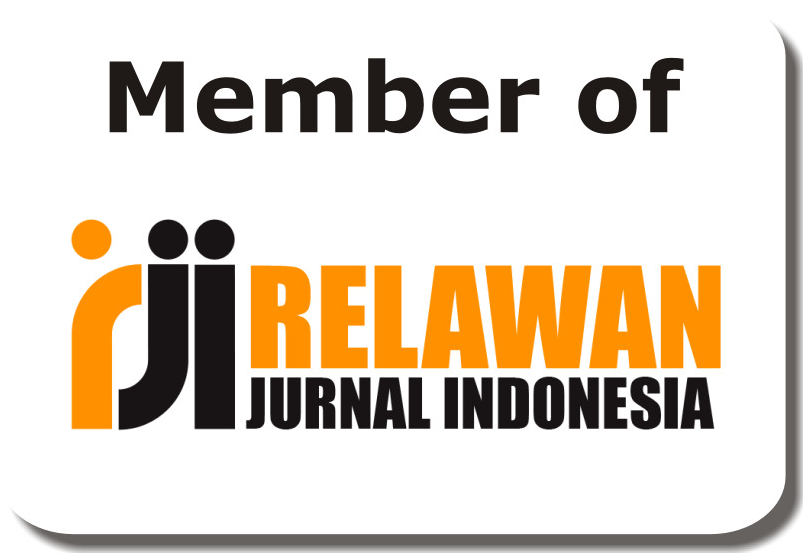Effects of Mindful Eating on the Mental Health of Students at State Universities in Malang
DOI:
https://doi.org/10.30983/educative.v7i1.5485Keywords:
Mindful Eating, Mental Health, StudentAbstract
This research discusses the practice of mindful eating of female students at State Universities in Malang and whether it affects their mental health. This paper aims understand the relationship between mindful eating and mental health. The sample is taken from students of five state universities in the city of Malang. The methodology in this study is quantitative in terms of numerical data analysis and statistical processing, which is assisted by data collection techniques such as analytical surveys as a way of collecting data on a large enough population. Seventy-one percent (128 respondents) of the acquired data came from open and closed questionnaires. Many students did not understand the concept of mindful eating and its application. The choice of food type was determined based on the feelings or emotions. In addition, weak mindful eating was also found to be more common in respondents who did multitasking eating. The results of the study prove that few female students actually practice mindful eating process well. This shows that there is a lack of attention to mental health.
Diskursus penelitian ini mengacu pada mindful eating mahasiswi di Perguruan Tinggi Negeri kota Malang yang berpengaruh pada kesehatan mental mereka. Tujuan dari tulisan ini tidak lain untuk memperoleh hasil reseacrh hubungan dari mindful eating dengan kesehatan mental, yang diambil dari sampel mahasiswi Perguruan Tinggi Negeri (PTN) Malang. Kemudian terkait metodologi pada penelitian ini bersifat kuantitatif pada ranah analisis data angka dan diolah secara statistik, yang dibantu dengan teknik pengumpulan data melalui survei analitik untuk mengumpulkan data pada populasi yang cukup besar. Data penelitian ini menemukan sebanyak 71% (128 responden) dari data kuesioner terbuka dan tertutup, bahwa para mahasiswinya banyak yang belum memahami konsep mindful eating beserta penerapannya, dimana pemilihan jenis pangan ditentukan berdasarkan perasaan atau emosi yang sedang dirasakan. Selain itu, lemahnya mindful eating juga ditemukan lebih banyak pada responden yang melakukan aktivitas makan secara multitasking (bersamaan dengan aktivitas lain). Hasil penelitian membuktikan bahwa sedikit mahasiswi yang benar-benar melakukan proses mindful eating dengan baik, dan hal ini membuktikan adanya ketidak sadaran dan kurangnya perhatian terhadap kesehan mental.
References
Books
Altares, P. S., A. R. I. Copo, Y. A. Gabuyo, A. T. Laddaran, L. D. P. Mejia, I. A. Policarpio, E. A. G. Sy, H. D. Tizon, and A. M. S. D. Yao. Elementary Statistics: A Modern Approach. Manila: REX Book Store, Inc, 2003.
Azwar, S. Metode Penelitian. Yogyakarta: Pustaka Pelajar, 2010.
BMKG. “Tren Konsumsi Dan Produksi Buah Dan Sayur. Buletin Pemantauan Ketahanan Pangan Indonesia. Vol. 8,†2017.
Bungin, B. Metodologi Penelitian Kuantitatif: Komunikasi, Ekonomi, Dan Kebijakan Publik Serta Ilmu-Ilmu Sosial Lainnya. Jakarta: Kencana Prenada Media Group, 2005.
Daniel, J. N. Sampling Essentials: Practical Guidlines for Making Sampling Choices. New York: Sage Publication, 2012.
Herzog, D. B., Franko, D. L., & Cable, P. Unlocking The Mistery of Eating Disorders: A Life-Saving Guide to Your Child’s Treatment and Recovery. New York: McGraw-Hill Companies, 2007.
Napitupulu, T. A. Research Metodology Module 4: Sampling Technique. Jakarta: Bina Nusantara University, 2014.
Taylor, S. E. Health Psychology. 4th ed. Boston: McGraw-Hill, 1999.
World Food Programme. “An Eating Habit Study: Factors That Could Influence Female Adolescents to Eat More Fruits and Vegetables,†2017.
Dissertations and Theses
Clementi. “The Relationship Between Eating Behavior and Psychological Distress Among Overweight and Obese People: Is There A Role for Mindfulness?†Thesis - Bologna University, 2015.
Khairiyah, E. L. “Pola Makan Mahasiswa Fakultas Kedokteran Dan Ilmu Kesehatan (FKIK) UIN Syarif Hidayatullah Jakarta Tahun 2016.†Skripsi - UIN Syarif Hidayatullah Jakarta, 2016.
Journals
Al-Amari, Hanaa Ghaleb, and Nedaa Al-Khamees. “The Perception of College Students about a Healthy Lifestyle and Its Effect on Their Health,†2015. https://doi.org/10.4172/2155-9600.1000437.
Alan, B Ersöz, D Akdemir, F. C. Cetin, and S. Karahan. “Mindful Eating, Body Weight, and Psychological Well-Being in Adolescence.†Childhood Obesity (Print) 18, no. 4 (2022): 246–253.
Arnett, Jeffrey Jensen. “Emerging Adulthood: A Theory of Development from the Late Teens through the Twenties.†American Psychologist 55, no. 5 (2000): 469–80. https://doi.org/10.1037/0003-066X.55.5.469.
Beng Tan, Seng, David Paul Capelle, Nor Zuraida Zainal, Ee Jane Lim, Ee Chin Loh, and Chee Loong Lam. “Mindfulness: A New Paradigm of Psychosocial Care in the Palliative Care Setting in Southeast Asia Mindfulness in Palliative Care-Seng Beng Tan et Al Commentary.†Vol. 46, 2017.
Clapp, Megan, Nadia Aurora, Lindsey Herrera, Manisha Bhatia, Emily Wilen, and Sarah Wakefield. “Gut Microbiota’s Effect on Mental Health: The Gut-Brain Axis.†Clinics and Practice 7, no. 4 (September 2017): 987. https://doi.org/10.4081/cp.2017.987.
Czepczor-Bernat, Kamila, Anna Brytek-Matera, Carla Gramaglia, and Patrizia Zeppegno. “The Moderating Effects of Mindful Eating on the Relationship between Emotional Functioning and Eating Styles in Overweight and Obese Women.†Eating and Weight Disorders, July 2019. https://doi.org/10.1007/s40519-019-00740-6.
Framson, Celia, Alan R. Kristal, Jeannette M. Schenk, Alyson J. Littman, Steve Zeliadt, and Denise Benitez. “Development and Validation of the Mindful Eating Questionnaire.†Journal of the American Dietetic Association 109, no. 8 (August 2009): 1439–44. https://doi.org/10.1016/j.jada.2009.05.006.
Giannopoulou, Ifigeneia, Maria Kotopoulea-Nikolaidi, Sofia Daskou, Kathy Martyn, and Ashani Patel. “Mindfulness in Eating Is Inversely Related to Binge Eating and Mood Disturbances in University Students in Health-Related Disciplines.†Nutrients 12, no. 2 (February 2020). https://doi.org/10.3390/nu12020396.
Gidugu, Vasudha, and Marjorie L. Jacobs. “Empowering Individuals with Mental Illness to Develop Healthy Eating Habits through Mindful Eating: Results of a Program Evaluation.†Psychology, Health and Medicine 24, no. 2 (February 2019): 177–86. https://doi.org/10.1080/13548506.2018.1516295.
Holford, P. “Depression: The Nutrition Connection.†Primary Care Mental Health, no. 1 (2003): 9–16.
Kawasaki, Y, and R Akamatsu. “Appreciation for Food, An Important Concept in Mindful Eating: Association with Home and School Education, Attitude, Behavior, and Health Status in Japanese Elementary School Children.†Global Health Promotion 27, no. 3 (2020): 140–149.
Keng, S.L., M. J. Smoski, and C. J. Robins. “Effects of Mindfulness on Psychological Health: A Review of Empirical Studies.†Clinical Psychology Review, 2011.
Khan, Zaynah, and Zainab F Zadeh. “ScienceDirect Mindful Eating and It’s Relationship with Mental Well-Being.†Procedia - Social and Behavioral Sciences 159 (2014): 69–73. https://doi.org/10.1016/j.sbspro.2014.12.330.
Lestari Hastutt, Endang. “PELEMBAGAAN PERILAKU PANGAN DAN GIZI.†Vol. 13, 1995.
Loga, Slobodan, and Bojan Šosić. “Environment and Mental Health.†In Psychiatria Danubina, 24:272–76, 2012.
Mikolajczyk, R. F, W. E Ansari, and A. E Maxwell. “Food Consumption Frequency and Perceived Stress and Depressive Symptoms among Students in Three European Countries.†Nutrition Journal 8, no. 1 (2009).
Mikolajczyk, Rafael T., Walid El Ansari, and Annette E. Maxwell. “Food Consumption Frequency and Perceived Stress and Depressive Symptoms among Students in Three European Countries.†Nutrition Journal 8, no. 1 (2009): 31. https://doi.org/10.1186/1475-2891-8-31.
Pintado-Cucarella, Sheila, and Paulina RodrÃguez-Salgado. “Mindful Eating and Its Relationship with Body Mass Index, Binge Eating, Anxiety and Negative Affect.†Journal of Behavior, Health & Social Issues 8, no. 2 (2016).
Potes A, Souza G, Nikolitch K, Penheiro R, Moussa Y, Jarvis E, Looper K, Rej S. “Mindfulness in Severe and Persistent Mental Illness: A Systematic Review.†INTERNATIONAL JOURNAL OF PSYCHIATRY IN CLINICAL PRACTICE 22, no. 4 (2018): 253–61.
Reynolds, Cecil R., and Michael C. Ramsay. “Bias in Psychological Assessment: An Empirical Review and Recommendations.†Handbook of Psychology, 2003. https://doi.org/10.1002/0471264385.wei1004.
Sanlier, N, Ş Kocabas, H. G Ulusoy, and B Celik. “The Relationship between Adults’ Perceptions, Attitudes of COVID-19, Intuitive Eating, and Mindful Eating Behaviors.†Ecology of Food and Nutrition 61, no. 1 (2022): 90–109.
Sarto, Hector Morillo, Alberto Barcelo-Soler, Paola Herrera-Mercadal, Bianca Pantilie, Mayte Navarro-Gil, Javier Garcia-Campayo, and Jesus Montero-Marin. “Efficacy of a Mindful-Eating Programme to Reduce Emotional Eating in Patients Suffering from Overweight or Obesity in Primary Care Settings: A Cluster-Randomised Trial Protocol.†BMJ Open 9, no. 11 (2019): 1–17. https://doi.org/10.1136/bmjopen-2019-031327.
Setyawati, V. A. V., and M. Setyowati. “Karakter Gizi Remaja Putri Urban Dan Rural Di Provinsi Jawa Tengah.†Kemas: Jurnal Kesehatan Masyarakat 11, no. 1 (2015).
Smart, R, A Chisum, K Robertson-Pfeffer, and Y Tsong. “Women’s Experience with a Mindful Eating Course on a University Campus: A Pilot Study.†Californian Journal of Health Promotion. Vol. 13, 2015.
Sogari, Giovanni, Catalina Velez-Argumedo, Miguel I. Gómez, and Cristina Mora. “College Students and Eating Habits: A Study Using an Ecological Model for Healthy Behavior.†Nutrients 10, no. 12 (December 2018). https://doi.org/10.3390/nu10121823.
Sondari, Mulia, Inge Brouwer, and Judhiastuty Februhartanty. “Eating Behaviour of Adolescent Schoolgirls in Malang, East Java: A Qualitative Study.†Malaysian Journal of Nutrition 25, no. September (2019): S87–96.
Sukadiyanto. “Stress Dan Cara Menguranginya.†Cakrawala Pendidikan, no. 1 (2010): 55–66.
Tejada, J. J., and J. R. B. Punzalan. “On The Misuse of Slovin’s Formula.†The Philippine Statistician 61, no. 1 (2012): 129–36.
Tennant, Ruth, Louise Hiller, Ruth Fishwick, Stephen Platt, Stephen Joseph, Scott Weich, Jane Parkinson, Jenny Secker, and Sarah Stewart-Brown. “The Warwick-Dinburgh Mental Well-Being Scale (WEMWBS): Development and UK Validation.†Health and Quality of Life Outcomes 5, no. 1 (November 2007): 63. https://doi.org/10.1186/1477-7525-5-63.
Thomas, Justin, Steven W. Furber, and Ian Grey. “The Rise of Mindfulness and Its Resonance with the Islamic Tradition.†Mental Health, Religion and Culture 20, no. 10 (November 2017): 973–85. https://doi.org/10.1080/13674676.2017.1412410.
Warren, Janet M, Nicola Smith, and Margaret Ashwell. “A Structured Literature Review on the Role of Mindfulness, Mindful Eating and Intuitive Eating in Changing Eating Behaviours: Effectiveness and Associated Potential Mechanisms,†2017. https://doi.org/10.1017/S0954422417000154.
Webb, J. B, C. B Rogers, L Etzel, and M. P Padro. “‘Mom, Quit Fat Talking-I’m Trying To Eat (Mindfully) Here!’: Evaluating A Sociocultural Model Of Family Fat Talk, Positive Body Image, And Mindful Eating In College Women.†Appetite 126 (2018): 169–175.
Wen, Tzu-Hsing, Wei-Ling Tchong, and Gregory S. Ching. “A Study on the Relationship between College Students’ Personality and Their Eating Habits.†International Journal of Information and Education Technology 5, no. 2 (2015): 146–49. https://doi.org/10.7763/ijiet.2015.v5.492.
Winkens, L, L Elstgeest, T Van Strien, B Penninx, M Visser, and I Brouwer. “Does Food Intake Mediate The Association Between Mindful Eating And Change In Depressive Symptoms?†Public Health Nutrition 23, no. 9 (2020): 1532–42.
Winkens, L, T Van Strien, I. A Brouwer, B Penninx, and M Visser. “Mindful Eating And Change In Depressive Symptoms: Mediation By Psychological Eating Styles.†Appetite 133 (2019): 204–211.
———. “The Mindful Eating Behavior Scale: Development and Psychometric Properties in a Sample of Dutch Adults Aged 55 Years and Older.†Journal of the Academy of Nutrition and Dietetics 118, no. 7 (2018): 1277–1290.e4.
Online References
Rock. “The Neuroscience of Mindfulness.†Psychology Today, 2019.
Downloads
Submitted
Accepted
Published
Issue
Section
License
Authors who publish with this journal agree to the following terms:
1. Authors retain copyright and grant the journal right of first publication with the work simultaneously licensed under a Creative Commons Attribution License that allows others to share the work with an acknowledgment of the work's authorship and initial publication in this journal.
2. Authors are able to enter into separate, additional contractual arrangements for the non-exclusive distribution of the journal's published version of the work (e.g., post it to an institutional repository or publish it in a book), with an acknowledgment of its initial publication in this journal.
3. Authors are permitted and encouraged to post their work online (e.g., in institutional repositories or on their website) prior to and during the submission process, as it can lead to productive exchanges, as well as earlier and greater citation of published work (See The Effect of Open Access).


















 Â
 







